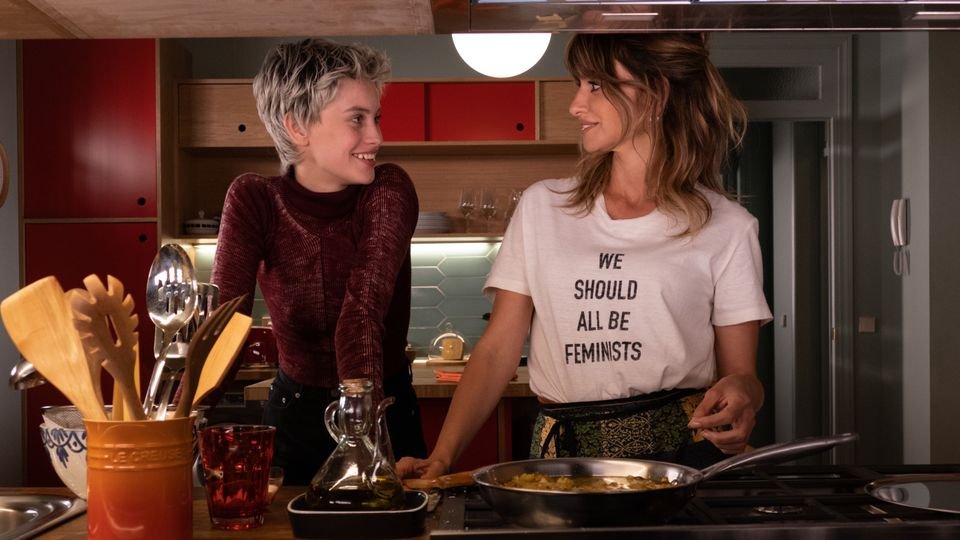PARALLEL MOTHERS
Directing: A-
Acting: A-
Writing: A-
Cinematography: B+
Editing: B+
You can practically recognize a Pedro Almodóvar film on sight. Parallel Mothers is his 22nd feature film, and his track record, dating back to 1980, is overall so great that I will see any movie, regardless of what actors are in it, based on his name alone. This is not always a guarantee, of course; some of his more recent output as varied slightly. In the past 25 years, seven of his films have featured Penélope Cruz, whose best work has arguably been under Almodóvar’s direction. Almodóvar has more than one muse—he’s made eight films with Antonio Banderas, who was in his last film, 2019’s Pain and Glory (as was Penélope Cruz)—but Cruz brings a softer, if still complex, tone to his projects.
Almodóvar also has a history of unique stories centered around women, which is what he returns to with Parallel Mothers. And instead of pairing Cruz with a man as the co-lead, we get 25-year-old Milena Smit, playing 17-year-old Ana, who happens to be hospital roommate to Cruz’s Janis when they both give birth at roughly the same time. Janis as a character never states her age, except to say she’s nearly 40; Cruz herself is 47. I suppose she has to play at least a few years younger to make her getting pregnant at an unusually older age slightly more plausible.
Janis and Ana become friendly in the hospital, and to a degree, bond over their shared experience. They exchange numbers and, over time, develop the kind of relationship you might only expect to see in an Almodóvar film. The overall arc of the story here has to do with their respective babies and their relationships with them, and early on it becomes clear what unfortunate circumstance ties them together. The knack that Almodóvar has, however, is for taking his stories, which often only seem at first to be predictable, into shockingly bizarre directions. Granted, Parallel Mothers never gets as overtly weird as, say, The Skin I Live In (2011), but it still has its own “wait, what?” paths to take.
This is a hard movie to discuss without giving away too much. It has sort of gentle twists, even as Janis, who is ultimately the central character, endures some moments that are deeply shocking to her. These are revelations that we can see coming as viewers, though, and it’s much more interesting to consider the psychological implications of her position. A lot of it begs questions of what it means to be a mother, and how much genetics truly comes into play when bonding with an infant or a child.
Genetics play a larger contextual part of Parallel Mothers than just mothers and children, and Almodóvar folds in a subplot here tied to the Spanish Civil War, which Ana clearly is not very well informed about. But, Janis is in the process of getting the unmarked grave of her murdered great grandparents excavated, and discussions about this are what both open and close the film. Exactly how this dark part of Spain’s history ties directly to the story of Janis and Ana and their babies is kind of lost on me, but there must be some connection.
In the meantime, the acting is great across the board in this film, but Cruz’s performance is stellar, and although odds seem about even regarding her getting an Oscar nomination this year, she certainly deserves one. The uniquely complex emotions of the character she plays are unparalleled in their rendering onscreen, and Cruz alone makes this movie worth seeing. But then, so does the rest of the cast. So does Almodóvar’s direction, even with his sometimes odd or quirky choices of editing or cinematography. Parallel Mothers starts with several scenes that leave you compelled yet wondering exactly where this is going, and then ends having taken you places you had no idea you’d ever have wanted to go.
That shirt is very . . . direct.
Overall: A-

